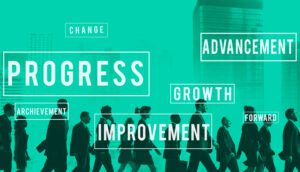
Job Outlook for Medical Billing and Coding Specialists
Medical billing and coding professionals are essential to the healthcare industry, responsible for processing insurance claims and translating medical records into standardized codes.
Although it’s a promising career, the growing incorporation of AI in the medical field has left many aspiring professionals uncertain about its long-term viability.
If you share this concern, you’ve come to the right place. In this guide, we’ll cover the job outlook for medical billing and coding specialists, providing data, salary expectations, insights into industry trends, and a look at the evolving role of technology in this dynamic profession.
Key Takeaways
|
What Does A Medical Billing/Coding Specialist Do?
While both roles fall under the umbrella term of medical records specialists, they are two distinct roles with different responsibilities.
Medical Billing Specialist Explained
The primary focus of a medical billing specialist is to ensure that the practice receives timely and accurate payment for the services provided by the healthcare professionals. A medical billing specialist handles communication and financial transactions between the provider, the insurance companies, and the patients.
Medical Coder Explained
A medical coding specialist is an expert in translating a healthcare provider’s documentation into standardized alphanumeric codes. Their work is the foundation for the billing process, ensuring that the services provided are accurately reflected for billing and record-keeping.
This is just a brief overview of two roles. Check our comprehensive medical biller vs medical coder comparison for more details
Job Outlook of Medical Records Specialist
According to the Bureau of Labor Statistics Occupational Outlook Handbook, employment of medical records specialists is projected to grow 9% between 2023 and 2033, which is much faster than the average for all occupations.
The agency expects about 15,000 job openings each year over the decade as existing workers retire or move to other roles.
The reasons for this growth include:
- Aging Population and Chronic Disease: As more people require medical care, there are more records to process and claims to submit. Electronic health records (EHRs) and value‑based care models demand accurate coding and billing to capture outcomes and reimbursements.
- Continued Digital Adoption: Healthcare employers are increasingly adopting electronic systems. BLS notes that because of increased digitization, they need qualified people who understand these technologies and can ensure data accuracy.
- Retirement Wave and Shortage Of Coders: Many experienced coders are nearing retirement. Furthermore, the huge gap between entry-level and experienced ones is creating a shortage of skilled professionals, which is driving the industry’s growth.
Salary Prospects and Where The Jobs Are
Medical billing and coding salaries vary by industry, state, and experience. The BLS Occupational Employment and Wage Statistics (OEWS) data reveal wide variation among industries:
| Industry | Average annual wage | Why it pays well |
| Grantmaking and giving services | ≈ $74,840 | These organizations may require coders and billers with specialized compliance knowledge for charitable hospitals and research grants. |
| Other professional, scientific, and technical services | ≈ $72,700 | Consulting firms and outsourcing vendors pay more to attract experienced coders for specialized projects. |
| Insurance carriers | ≈ $69,330 | Insurance firms rely on billers to analyze claims, detect fraud, and ensure regulatory compliance. |
| Software publishers | ≈ $67,040 | Coding expertise helps design and test EHR and revenue‑cycle software. |
Top 5 states with the highest concentration of jobs and location quotients in Medical Records Specialists:
| State | Employment | Location quotient | Hourly mean wage | Annual mean wage |
| Alaska | 1,410 | 3.71 | $ 28.32 | $ 58,900 |
| South Dakota | 1,100 | 2.02 | $ 25.20 | $ 52,420 |
| Montana | 960 | 1.57 | $ 23.57 | $ 49,020 |
| Idaho | 1,570 | 1.56 | $ 24.59 | $ 51,160 |
| Kentucky | 3,730 | 1.56 | $ 22.52 | $ 46,840 |
The highest‑paying states for these roles are:
- Washington: ~$64,250
- California: ~$64,070
- Connecticut: ~$63,250
- Maryland: ~$62,930
Still not sure about this role? Here are 10 reasons to start a medical billing and coding.
Are Medical Coders Being Phased Out By Artificial Intelligence?
The AI healthcare market is expected to grow 36.1% by 2030 in the US alone. It is not surprising that people are concerned about AI taking over healthcare roles like medical billers.
While it is a valid concern, given the numbers, medical records specialists remain in high demand, as seen in projected growth by the BLS.
Additionally, it is important that aspirants understand that AI is not a replacement for medical billing and coding specialists but a tool to streamline their workflow.
How To Enter The Field
Here’s a quick overview of how to become a medical records specialist:
Education: Many community colleges and technical schools offer certificate or associate‑degree programs in medical coding. However, experience and hands-on skills are more desired by employers. Therefore, it’s best to enroll in a fast-track Medical Billing and Coding Specialist Training Program, like the one provided by CCI Training Center.
Certification: Credentials such as CPC and ICD-10-CM demonstrate expertise in specific coding systems. Not to mention, employers may require or prefer certification.
Gain experience: Consider internships, externships, or entry‑level positions at hospitals, physicians’ offices, or billing companies.
Stay updated: The coding landscape evolves with new CPT and ICD codes, value‑based reimbursement models, and AI‑assisted tools. Continuing education helps coders maintain credentials and adjust to industry changes.
Career advancement and transferable skills
Medical billing and coding is not a stagnant career. In fact, it opens doors to several health‑information careers.
Coders who pursue additional education can advance to:
- Health Information Technologist
- Medical Registrar Roles
- Compliance Auditing
- Denial management
- Revenue‑cycle management
Final Words
Medical billing and coding is a growing, technology‑enhanced career with strong job security. Salaries are competitive and rise with experience, specialization, and certification.
If you’re analytical, detail‑oriented, and interested in healthcare, this profession offers remote opportunities, career advancement, and a chance to contribute to the efficient delivery of care.
Program Offered
- Pharmacy Technician Training
- Online Medical Assistant
- Medical Billing and Coding Specialist Program
- Cloud Computing Technician Training
- Computer Network Technician
- Business and Accounting
- Radiology Technician Training
- Medical Assistant Program
- Computer Support Technician
- Cybersecurity Program
- Virtual Assistant Training

This article is written by
Share this article

Job Outlook for Medical Billing and Coding Specialists
Medical billing and coding professionals are essential to the healthcare industry, responsible for processing insurance claims and translating medical records into standardized codes. Although it’s a promising career, the growing incorporation of AI in the medical field has left many aspiring professionals uncertain about its long-term viability. If you share this concern, you’ve come to the right place. In this guide, we’ll cover the job outlook for medical billing and coding specialists, providing data, salary expectations, insights into industry trends, and a look at the evolving role of technology in this dynamic profession.Key Takeaways
|
What Does A Medical Billing/Coding Specialist Do?
While both roles fall under the umbrella term of medical records specialists, they are two distinct roles with different responsibilities.Medical Billing Specialist Explained
The primary focus of a medical billing specialist is to ensure that the practice receives timely and accurate payment for the services provided by the healthcare professionals. A medical billing specialist handles communication and financial transactions between the provider, the insurance companies, and the patients.Medical Coder Explained
A medical coding specialist is an expert in translating a healthcare provider’s documentation into standardized alphanumeric codes. Their work is the foundation for the billing process, ensuring that the services provided are accurately reflected for billing and record-keeping. This is just a brief overview of two roles. Check our comprehensive medical biller vs medical coder comparison for more detailsJob Outlook of Medical Records Specialist
According to the Bureau of Labor Statistics Occupational Outlook Handbook, employment of medical records specialists is projected to grow 9% between 2023 and 2033, which is much faster than the average for all occupations. The agency expects about 15,000 job openings each year over the decade as existing workers retire or move to other roles. The reasons for this growth include:- Aging Population and Chronic Disease: As more people require medical care, there are more records to process and claims to submit. Electronic health records (EHRs) and value‑based care models demand accurate coding and billing to capture outcomes and reimbursements.
- Continued Digital Adoption: Healthcare employers are increasingly adopting electronic systems. BLS notes that because of increased digitization, they need qualified people who understand these technologies and can ensure data accuracy.
- Retirement Wave and Shortage Of Coders: Many experienced coders are nearing retirement. Furthermore, the huge gap between entry-level and experienced ones is creating a shortage of skilled professionals, which is driving the industry’s growth.
Salary Prospects and Where The Jobs Are
Medical billing and coding salaries vary by industry, state, and experience. The BLS Occupational Employment and Wage Statistics (OEWS) data reveal wide variation among industries:| Industry | Average annual wage | Why it pays well |
| Grantmaking and giving services | ≈ $74,840 | These organizations may require coders and billers with specialized compliance knowledge for charitable hospitals and research grants. |
| Other professional, scientific, and technical services | ≈ $72,700 | Consulting firms and outsourcing vendors pay more to attract experienced coders for specialized projects. |
| Insurance carriers | ≈ $69,330 | Insurance firms rely on billers to analyze claims, detect fraud, and ensure regulatory compliance. |
| Software publishers | ≈ $67,040 | Coding expertise helps design and test EHR and revenue‑cycle software. |
| State | Employment | Location quotient | Hourly mean wage | Annual mean wage |
| Alaska | 1,410 | 3.71 | $ 28.32 | $ 58,900 |
| South Dakota | 1,100 | 2.02 | $ 25.20 | $ 52,420 |
| Montana | 960 | 1.57 | $ 23.57 | $ 49,020 |
| Idaho | 1,570 | 1.56 | $ 24.59 | $ 51,160 |
| Kentucky | 3,730 | 1.56 | $ 22.52 | $ 46,840 |
- Washington: ~$64,250
- California: ~$64,070
- Connecticut: ~$63,250
- Maryland: ~$62,930
Are Medical Coders Being Phased Out By Artificial Intelligence?
The AI healthcare market is expected to grow 36.1% by 2030 in the US alone. It is not surprising that people are concerned about AI taking over healthcare roles like medical billers. While it is a valid concern, given the numbers, medical records specialists remain in high demand, as seen in projected growth by the BLS. Additionally, it is important that aspirants understand that AI is not a replacement for medical billing and coding specialists but a tool to streamline their workflow.How To Enter The Field
Here’s a quick overview of how to become a medical records specialist: Education: Many community colleges and technical schools offer certificate or associate‑degree programs in medical coding. However, experience and hands-on skills are more desired by employers. Therefore, it’s best to enroll in a fast-track Medical Billing and Coding Specialist Training Program, like the one provided by CCI Training Center. Certification: Credentials such as CPC and ICD-10-CM demonstrate expertise in specific coding systems. Not to mention, employers may require or prefer certification. Gain experience: Consider internships, externships, or entry‑level positions at hospitals, physicians’ offices, or billing companies. Stay updated: The coding landscape evolves with new CPT and ICD codes, value‑based reimbursement models, and AI‑assisted tools. Continuing education helps coders maintain credentials and adjust to industry changes.Career advancement and transferable skills
Medical billing and coding is not a stagnant career. In fact, it opens doors to several health‑information careers. Coders who pursue additional education can advance to:- Health Information Technologist
- Medical Registrar Roles
- Compliance Auditing
- Denial management
- Revenue‑cycle management
Final Words
Medical billing and coding is a growing, technology‑enhanced career with strong job security. Salaries are competitive and rise with experience, specialization, and certification. If you’re analytical, detail‑oriented, and interested in healthcare, this profession offers remote opportunities, career advancement, and a chance to contribute to the efficient delivery of care.Program Offered
- Pharmacy Technician Training
- Online Medical Assistant
- Medical Billing and Coding Specialist Program
- Cloud Computing Technician Training
- Computer Network Technician
- Business and Accounting
- Radiology Technician Training
- Medical Assistant Program
- Computer Support Technician
- Cybersecurity Program
- Virtual Assistant Training

This article is written by
Share this article
Program Offered
- Pharmacy Technician Training
- Online Medical Assistant
- Medical Billing and Coding Specialist Program
- Cloud Computing Technician Training
- Computer Network Technician
- Business and Accounting
- Radiology Technician Training
- Medical Assistant Program
- Computer Support Technician
- Cybersecurity Program
- Virtual Assistant Training

This article is written by
Share this article
Frequently Asked Questions FAQ's
Is a medical coder in high demand?
Yes. According to the BLS, this role is expected to grow by 9% with 1500 job openings each year.
Are medical coders being phased out?
Although AI is growing in the healthcare industry, it is not going to phase out medical coders.
Is it hard to find a job as a medical coder?
If you possess in-demand skills and credentials, then you can find a job easily. However, if you’re struggling with a job hunt, our career services can help you find the right role for you.
Is there a shortage of medical coders?
There’s a shortage of experienced medical coders.
Related Articles





CCI Training Center Proudly Completes
41 Years in Career Training Services












